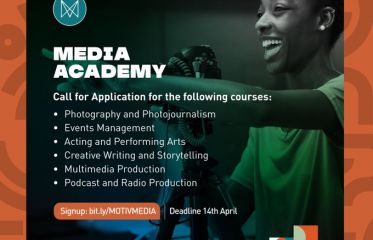I am a
student
institution
career professional
I need help with
Career Selection & Planning
Find your best-fit career, stream, course or college through advanced assessments and expert guidance.
college applications
Get admits from your dream colleges through end-to-end applications guidance for overseas and liberal arts universities.
I am interested in
Career Development Programs
State-of-the-art career assessments, expert guidance, and more to help students plan their career paths.
Career Advancement Programs
Expert-led MUN training programs, inspirational career talks and more to help students get that added edge.
I am interested in
Getting Certified (ICCC)
Become an International Certified Career Coach through a multi-level credentialing program by Mindler & CDA (USA).
Partnering with Mindler
Expand and grow your career counselling practice by leveraging the full force of Mindler’s career guidance platform.
Ready to discover your perfect career?
Enter your email id to take the Orientation Style test for free.
CAREER COUNSELLING PROGRAMS
Class 8-9
Stream & Subject SelectionAdvanced assessment & personalised guidance to help you select the perfect stream and subjects that align you to the right careers.
Class 10-12
Career Selection & PlanningExpert guidance & 5-dimensional assessment to help you discover your perfect career and choose the right course and college.
Graduates
Career Selection & Development5-dimensional assessment & superior guidance to help you discover your perfect career and choose the best next step.
Thank you for contacting us!
One of our team members will respond in 2 working days to resolve your query. If your query is urgent, you can alternatively call our career helpline.
Ready to pave your way to your dream college?
Leave your details below and we will get in touch shortly.
COLLEGE APPLICATION PROGRAMS
Overseas Application
End-to-end overseas admissions guidance to help you build the perfect applications for your target universities.
Liberal Arts Application
Comprehensive guidance and personalised application development for admissions to Liberal Arts programs.
Thank you for contacting us!
One of our team members will respond in 2 working days to resolve your query. If your query is urgent, you can alternatively call our career helpline.
Ready to give students the best of career guidance?
Leave your details below and we will get in touch shortly.
Career Development Programs
Career Development &
Planning Ecosystem
State-of-the-art assessment & end-to-end career guidance to help students discover their perfect career.
Thank you for contacting us!
One of our team members will respond in 2 working days to resolve your query. If your query is urgent, you can alternatively call our career helpline.
Ready to give your students the added edge?
Leave your details below and we will get in touch shortly.
Career Advancement Programs
MUN Training Program
Expert-led training and comprehensive guidance sessions to help students excel at MUN conferences.
Mindler Talks
Career awareness and inspirational talks for students with professionals who have achieved success in their fields.
Thank you for contacting us!
One of our team members will respond in 2 working days to resolve your query. If your query is urgent, you can alternatively call our career helpline.
Ready to upgrade your career counselling skills?
Enter your email id to start your ICCC application.
Getting Certified (ICCC)
International Certified
Career Coach (ICCC)
A 3-month program with emphasis on global practices, experiential learning & career guidance tools.
Thank you for contacting us!
One of our team members will respond in 2 working days to resolve your query. If your query is urgent, you can alternatively call our career helpline.
Ready to grow as a counsellor?
Leave your details below and we will get in touch shortly.
Partnering with Mindler
Mindler Partner Program
World-class career assessment platform & tools to help you scale up your career counselling practice.
Thank you for contacting us!
One of our team members will respond in 2 working days to resolve your query. If your query is urgent, you can alternatively call our career helpline.
Breaking News
- Ministry of Education and Sports Azerbaijan Government Scholarships For 2025-2026 Academic Year ...Read More
- Government Sponsorship Undergraduate Admission Lists 2025-26 for Makerere University ...Read More
- Ministry of Education And Sports: Egyptian Government Scholarships 2025-2026 Academic Year ...Read More
- Ground Breaker Full Scholarship for girls to study Software Engineering 2025 July Intake ...Read More
- Tony Elumelu Foundation Entrepreneurship Programme (TEEP) 2025 for young African Entrepreneurs ...Read More
- DESIGNING FUTURES 2050 International Design Competition 2025 (€15,000 prize) ...Read More
- Ground Breaker Full time Scholarship for girls to study Software Engineering 2025 Intake ...Read More
- Ministry of Education And Sports Algerian Vocational Training Scholarships for 2024-2025 AY ...Read More
- Ministry of Education and Sports Advert for the Algerian Government Scholarships for 2024-2025 ...Read More
- Uganda Dev Summit 2024 Live Stream ...Read More
Producer and Director
Producers and directors create motion pictures, television shows, live theater, and other performing arts productions. They interpret a writer’s script to entertain or inform an audience.
Add to FavouritesDaily Tasks
Producers and directors typically do the following:
1. Select scripts
2. Audition and select cast members and the film or stage crew
3. Approve the design and financial aspects of a production
4. Oversee the production process, including performances, lighting, and choreography
5. Oversee the post-production process, including editing, special effects, music selection, and a performance’s overall tone
6. Ensure that a project stays on schedule and within budget
7. Approve new developments in the production
Key Knowledge Areas
Communications and Media — Knowledge of media production, communication, and dissemination techniques and methods. This includes alternative ways to inform and entertain via written, oral, and visual media.
English Language — Knowledge of the structure and content of the English language including the meaning and spelling of words, rules of composition, and grammar.
Computers and Electronics — Knowledge of circuit boards, processors, chips, electronic equipment, and computer hardware and software, including applications and programming.
Administration and Management — Knowledge of business and management principles involved in strategic planning, resource allocation, human resources modeling, leadership technique, production methods, and coordination of people and resources.
Telecommunications — Knowledge of transmission, broadcasting, switching, control, and operation of telecommunications systems.
Customer and Personal Service — Knowledge of principles and processes for providing customer and personal services. This includes customer needs assessment, meeting quality standards for services, and evaluation of customer satisfaction.
Law and Government — Knowledge of laws, legal codes, court procedures, precedents, government regulations, executive orders, agency rules, and the democratic political process.
Clerical — Knowledge of administrative and clerical procedures and systems such as word processing, managing files and records, stenography and transcription, designing forms, and other office procedures and terminology.
Education and Training — Knowledge of principles and methods for curriculum and training design, teaching and instruction for individuals and groups, and the measurement of training effects.
Key Skills
Monitoring — Monitoring/Assessing performance of yourself, other individuals, or organizations to make improvements or take corrective action.
Speaking — Talking to others to convey information effectively.
Coordination — Adjusting actions in relation to others' actions.
Critical Thinking — Using logic and reasoning to identify the strengths and weaknesses of alternative solutions, conclusions or approaches to problems.
Writing — Communicating effectively in writing as appropriate for the needs of the audience.
Active Listening — Giving full attention to what other people are saying, taking time to understand the points being made, asking questions as appropriate, and not interrupting at inappropriate times.
Reading Comprehension — Understanding written sentences and paragraphs in work related documents.
Time Management — Managing one's own time and the time of others.
Judgment and Decision Making — Considering the relative costs and benefits of potential actions to choose the most appropriate one.
Complex Problem Solving — Identifying complex problems and reviewing related information to develop and evaluate options and implement solutions.
Management of Personnel Resources — Motivating, developing, and directing people as they work, identifying the best people for the job.
Social Perceptiveness — Being aware of others' reactions and understanding why they react as they do.
Negotiation — Bringing others together and trying to reconcile differences.
Active Learning — Understanding the implications of new information for both current and future problem-solving and decision-making.
Persuasion — Persuading others to change their minds or behavior.
Systems Analysis — Determining how a system should work and how changes in conditions, operations, and the environment will affect outcomes.
Management of Financial Resources — Determining how money will be spent to get the work done, and accounting for these expenditures.
-
 Call for Applications for MOTIV Media Academy
Call for application for multimedia courses
Call for Applications for MOTIV Media Academy
Call for application for multimedia courses
Know more -
Media Challenge Fellowship Program 2025 for Journalism and Media Students
Media Challenge Initiative is seeking applications for its Media Challenge Fellowship Program from journalism and media training institutions
Know more -
CANEX Presents Africa @ Portugal Fashion 2024 for models and fashion designers
CANEX Presents Africa @ Portugal Fashion provides a platform for development of emerging fashion designers
Know more -
The Hot Docs-Blue Ice Docs Fund for Filmmakers across Africa ($20,000 CAD in funding)
A fund for filmmakers who live and work on the African continent
Know more -
Free Podcasting and Radio Presenting Program at MOTIV Podcast and Radio Academy
Become a Content Creator with the MoTIV Podcast and Radio Academy
Know more -
Call for Aspiring Fashion Designers to join the MOTIV Creatives Academy
Are you an aspiring designer? Join our textile academy today
Know more -
 Screenwriting Masterclass: Open Call for Submissions for all aspiring screen writers
A Screenwriting Masterclass hosted by the creator of the BBC hit television series
Screenwriting Masterclass: Open Call for Submissions for all aspiring screen writers
A Screenwriting Masterclass hosted by the creator of the BBC hit television series
Know more -
 Acting Masterclass: Open Call for Submissions for all aspiring actors and actresses
Acting Masterclass hosted by the creator of the BBC hit television series
Acting Masterclass: Open Call for Submissions for all aspiring actors and actresses
Acting Masterclass hosted by the creator of the BBC hit television series
Know more -
The Collective UG Launches Worship Academy
Become a Worship Artist
Know more -
Tarbell Fellowship for early-career journalists
The Tarbell Fellowship is a one-year programme for early-career journalists interested in covering emerging technologies, especially artificial intelligence.
Know more -
The Bold Woman Fellowship 2023 for creative Ugandan based fashion designers and artisans
Supported by Bold in Africa and a grant from Ignite Culture: ACP-EU Culture Programme (East Africa).
Know more -
African Union Youth Volunteers Corps 2023 (Fully Funded)
Serve as a professional volunteer in any African Country
Know more -
The British Council's SoCreative Africa learning programme for Aspiring young entrepreneurs
Hone your skills as a young entrepreneurs
Know more -
Makerere University Scholarships for First Year Female Students for 2023-2024 Intake
Tuition and Funcational Fees Waiver Scholarship for First Year Female Students
Know more -
UNSECO Skills in Action Photo Competition 2023 for amateurs and professional photographers (1600 USD cash prize)
Photos should show the innovative aspects of technical and vocational education and training (TVET).
Know more -
Interviews for Admission into TVET Diploma Awarding Institutions for National Diploma Programs for Academic Year 2023-2023
Application for TVET Courses in Uganda
Know more -
Call for Applications: NileWell Scientist-Journalist Co-Production Fellowship Program 2023
Fellowship for Journalists
Know more -
Are you Africa’s next top comedian? The Africa No Filter Comedy Lab is looking for you The Africa No Filter Comedy Lab is looking for talented African comedians to develop fresh and unfiltered content about Africa
Know more -
GOBELINS-NetFlix Scholarships 2023-2024 for African Animators (Funded study in Paris, France)
Masters Scholarship to study in Paris
Know more -
The Michael Elliott Award for Excellence in African Storytelling (Win $5,000 cash prize)
The winners will receive a $5,000 cash prize and a personalized crystal award
Know more -
Are you an African filmmaker working on the final stages of your film project?
Apply for the Last Mile Film Fund
Know more -
The Commonwealth Short Story Prize 2023 (Win £5,000)
Submit your short fiction story
Know more -
Apply:Chevening UK Government Scholarship to Study in the UK 2023-2024 (Fully Funded)
Fully Funded Scholarships to undertake any master's course at any UK University
Know more -
Ignite Culture for East African Creatives for 2022 Program (Win 180,000 Euros in grants)
Opportunity for East African Creatives
Know more -
 The University of Johannesburg Artists In Residence Programme 2023
A Residence Programme is designed to stimulate arts-practice as research and presentation of new creative output
The University of Johannesburg Artists In Residence Programme 2023
A Residence Programme is designed to stimulate arts-practice as research and presentation of new creative output
Know more -
 JustFilms initiative from Ford Foundation for Film Makers
JustFilms projects are inspired by courageous individuals and undaunted communities seeking justice
JustFilms initiative from Ford Foundation for Film Makers
JustFilms projects are inspired by courageous individuals and undaunted communities seeking justice
Know more -
Film Make up Artists Training Workshop 2022
Diversify your skills in the Make Up Industry
Know more -
Ugandan filmmaker eyes new Africa narrative after Disney animation deal
Malinga is the celebrated filmmaker behind the "Kalabanda Ate My Homework" animation
Know more -
Getty Images Editorial Inclusion Grants for 2022 for photographers around the world
The Getty Images Inclusion Grants are open to photographers around the world
Know more -
The Sudkulturfonds 100 Artists grant for early stage artists (CHF 1,000 grant)
Funding Opportunity for Artists
Know more -
Call for applications open for the inaugural AU Media Fellowship
Become an African Union Fellow
Know more -
Africa No Filter Media grant for Women Storytellers ($10,000-25,000 in Grants)
This grant call-out wants to contribute to an increase in African female storytellers and content creators and to give space to voices that are historically misrepresented
Know more -
African Women in Media Graduate Trainee Programme 2022
Graduate Program in journalism
Know more -
Digital Lab Africa 2022 for young African Creatives
Opportunity for African Creatives to Hon their Skills
Know more -
African Development Bank Fashionomics Africa Contest 2022 for African Designers (USD 6,000 cash prize)
The African Development Bank Fashionomics Africa initiative’s second online competition is offering $6,000 total in cash prizes, mentoring, new branding packages and other support for winning African designers of sustainable and circular fashion
Know more -
Africa No Filter (ANF) Storify Africa Fellowship 2022 for emerging storytellers
Female journalists from across the continent to be a part of the inaugural cohort of fellows
Know more -
Maisha Magic Movies is seeking new and exciting movie proposals from Ugandan filmmakers
Movies with aspirational themes but also rooted in our diverse and dynamic realities are needed
Know more -
Generation Connect Global E-Waste Iconation
Design an Icon to symbolize the tack back and collection on e-waste!
Know more -
Islamic Development Bank - Islamic Solidarity Fund for Development TVET Scholarships
Fully Paid TVET Scholarships
Know more -
Henry Nxumalo Foundation AIJC grants for African journalists in health reporting 2021 ($5000 grants)
Win grants ranging from $1 000 to $5 000
Know more -
Call for Application for South-South Entrepreneurship Academy Second Cohort 2021
Beauty in Mind and Action for Sustainable Business
Know more -
NetFlix UNESCO Short Film Competition 2022 for emerging Filmmakers across sub-saharan Africa
Netflix and UNESCO are launching a short film competition to discover emerging filmmaking talent
Know more -
 50% scholarships to study at the prestigious Limkokwing University in Uganda for 2021 intake
Empowering Uganda's Youth for a Dynamic Future
50% scholarships to study at the prestigious Limkokwing University in Uganda for 2021 intake
Empowering Uganda's Youth for a Dynamic Future
Know more -
Ignite Culture for Eastern African Creatives
Grant Facility for the Cultural and Creative Sectors
Know more -
Multichoice Talent Factory Academy Program 2021 for Aspiring Film-Makers
World class training from the leaders in Entertainment on the African Continent
Know more -
Fully Funded Workshop for Film Makers and digital story tellers
Great opportunity for film makers
Know more -
Applications are now open for Future News Worldwide 2021
An international summit for the world's best young media makers
Know more -
Agenda 2063 Women’s Photojournalism Award (2000 USD Prize)
Win Cash Prize of 2000 USD
Know more -
Goethe Institute Writers' Residency 2021 for young African Writers (Fully Funded to Kigali , Rwanda)
Four-week writers’ residency in Kigali (Rwanda) in September 2021
Know more -
Canon Student Development Programme for University Students
Get world class mentorship from world class photograhers
Know more -
Call for applications arcus project 2021 ibaraki Artists-in-residence program
Fully Funded Residence Program for Artist
Know more -
Call for Articles on Activism and Social Change through Storytelling
Golden Opportunity for Writers
Know more -
CreaTech Animation Incubator in order to equip East African animators to attend the Mifa in 2020
Incubator of Animators to acquire world class skills
Know more -
Homeless Ugandan girl becomes one of country’s top chess players, buys mom a house
The power of the dream
Know more -
Meet the students running an online television channel
Students poised to make a change in Entertainment
Know more -
Riding boda boda to pay tuition at university
The incredible story of Francis Ssewankambo
Know more
Draw Inspiration from time tested individuals
-
 Meet Allan Manzi, Uganda's Award Winning Film Maker
Meet Allan Manzi, Uganda's Award Winning Film Maker
Watch Interview -
 Phillip Luswata - A Time Tested Actor and Director
Phillip Luswata - A Time Tested Actor and Director
Watch Interview -
 Nisha Kalema - Ugandan Multi-Award Winning Actress, Producer and Writer
Nisha Kalema - Ugandan Multi-Award Winning Actress, Producer and Writer
Watch Interview -
 Marvin Musoke - Cinematographer
Marvin Musoke - Cinematographer
Watch Interview -
 Meddie Menz - One of Uganda`s best Video directors
Meddie Menz - One of Uganda`s best Video directors
Watch Interview -
 Loukman Ali - The Ugandan-Netflix filmmaker
Loukman Ali - The Ugandan-Netflix filmmaker
Watch Interview -
 Sasha Vybz - Celebrated Film Maker
Sasha Vybz - Celebrated Film Maker
Watch Interview -
 Eleanor Nabwiso - Actress, Film Producer and Director
Eleanor Nabwiso - Actress, Film Producer and Director
Watch Interview -
 Bamusiime Sylvia - Woman Cinematographer
Bamusiime Sylvia - Woman Cinematographer
Watch Interview -
 Doreen Mirembe : Actress and producer.
Doreen Mirembe : Actress and producer.
Watch Interview -
 Nana Kagga : A seasoned Ugandan Actress
Nana Kagga : A seasoned Ugandan Actress
Watch Interview -
 Mathew Nabwiso
Mathew Nabwiso
Watch Interview
Careers that are in the same career field as Producer and Director
- Audio and Video Equipment Technician Know more
- Broadcast Technician Know more
- Camera Operator Know more
- CopyWriter Know more
- Multimedia Artist and Animator Know more
- Graphic Designer Know more
- Writer and author Know more
- Reporter, Correspondent and Broadcast News Analyst Know more
- Fashion Designer Know more
- Craft and Fine Artist, Including Painter, Sculptor, and Illustrator Know more
- Producer and Director Know more
- Broadcast News Analyst Know more
- Editor Know more
- Agents and Business Managers of Artists, Performers, and Athlete Know more
- Art Director Know more
- Craft Artist Know more
- Fine Artists, Including Painters, Sculptors, and Illustrator Know more
- Commercial and Industrial Designer Know more
- Floral Designer Know more
- Merchandise Displayers and Window Trimmer Know more
- Set and Exhibit Designer Know more
- Directors -Stage, Motion Pictures, Television, and Radio Know more
- Program Director Know more
- Talent Director Know more
- Umpire, Referees, and Other Sports Officials Know more
- Dancer Know more
- Choreographer Know more
- Music Director and Composer Know more
- Music Director Know more
- Music Composer and Arranger Know more
- Musician and Singer Know more
- Singer Know more
- Musician, Instrumental Know more
- Radio and Television Presenter Know more
- Public Address System Announcer (Emcee) Know more
- Public Relations Specialist Know more
- Editor Know more
- Technical Writer Know more
- Copy Writer Know more
- Interpreter and Translator Know more
- Broadcast Technician Know more
- Radio Operator Know more
- Sound Engineering Technician Know more
- Photographer Know more
- Camera Operator, Television, Video, and Motion Picture Know more
- Film and Video Editor Know more
- Amusement and Recreation Attendant Know more
- Hairdresser, Hairstylist, and Cosmetologists Know more
- Word Processor and Typist Know more
- Office Machine Operator, Except Computer Know more
- Radio Mechanic Know more
- Electrical Power-Line Installers and Repairer Know more
- Prepress Technicians and Worker Know more
- Printing Press Operator Know more
- Desktop Publisher Know more
- DJ Know more
- Music Producer Know more
Online Training in Arts, Audio + Video Technology and Communications
Latest Jobs Corner
-
Planner – Kalanchoe Jobs – Xclusive Uganda
Posted: Posted Mon, 07 Jul 2025 14:44:04 +0000 -
UN-REDD National Technical Advisor Jobs – United Nations Development Programme (UNDP)
Posted: Posted Mon, 07 Jul 2025 14:00:45 +0000 -
No Experience Accounts Intern Job Opportunities – Davis & Shirtliff Group
Posted: Posted Mon, 07 Jul 2025 14:00:36 +0000 -
Driver Jobs – Omia Agribusiness Development
Posted: Posted Mon, 07 Jul 2025 14:00:28 +0000 -
Fresher IT Security Risk Officer Jobs – Cairo Bank Uganda
Posted: Posted Mon, 07 Jul 2025 14:00:19 +0000 -
People Business Partner (HR Jobs) – Nile Breweries
Posted: Posted Mon, 07 Jul 2025 14:00:03 +0000 -
Project and Partnership Support Officer NGO Jobs – ACTED Uganda
Posted: Posted Mon, 07 Jul 2025 13:59:50 +0000 -
Deputy Vice Chancellor – Finance and Administration Jobs – Mbarara University of Science and Technology
Posted: Posted Mon, 07 Jul 2025 13:59:41 +0000 -
No Experience Graphic Designer Jobs – Brand Care
Posted: Posted Mon, 07 Jul 2025 13:59:33 +0000 -
HR Officer Jobs – Africa Global Logistics
Posted: Posted Mon, 07 Jul 2025 13:59:24 +0000
Advertisement
Advertisement
Popular Careers
-
Civil Engineer
27650 Views -
Actor
21890 Views -
Flight attendant
19793 Views -
Fashion Designer
18915 Views -
Pilot and flight engineer
16995 Views
























